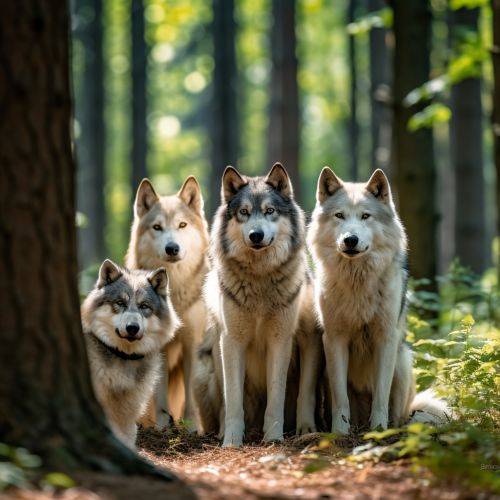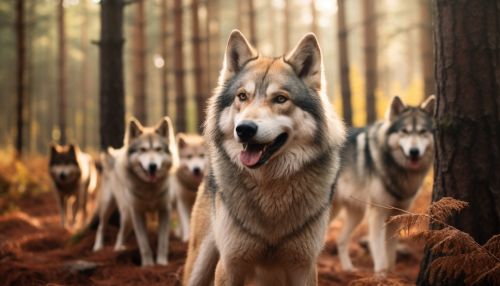Canidae
Taxonomy and Evolution
The family Canidae, commonly known as canids, belongs to the order Carnivora. This family includes domestic dogs, wolves, foxes, jackals, dingoes, and other extant and extinct dog-like mammals. The Canidae family is divided into three subfamilies: Caninae, Hesperocyoninae, and Borophaginae.
The Canidae family is believed to have evolved during the Eocene epoch, approximately 40 million years ago. The earliest canid, the Hesperocyon, was a small forest-dwelling creature that resembled modern civets in size and shape.


Physical Characteristics
Canids are typically characterized by their long snouts, non-retractable claws, and bushy tails. They have a highly developed sense of smell, which they use for hunting and communication. The size of canids can vary greatly, from the small fennec fox weighing just 1.5 kg to the gray wolf, which can weigh up to 80 kg.
Diet and Hunting
Members of the Canidae family are primarily carnivorous, with their diet consisting mainly of meat. They are known for their hunting skills, often hunting in packs to take down larger prey. Some species, like the red fox, are omnivorous and also consume fruits and insects.
Behavior and Social Structure
Canids are known for their complex social structures, often living in packs. They communicate through a variety of vocalizations, body postures, and scents. Many canids, such as wolves and African wild dogs, exhibit cooperative hunting behaviors and share care of their young.
Reproduction and Lifespan
Canids typically have a gestation period of 50-60 days, with the female giving birth to a litter of pups. The lifespan of canids varies greatly depending on the species, with smaller species generally living longer than larger ones.
Conservation Status
Many species within the Canidae family are threatened or endangered due to habitat loss, hunting, and disease. Conservation efforts are ongoing to protect these species and their habitats.
